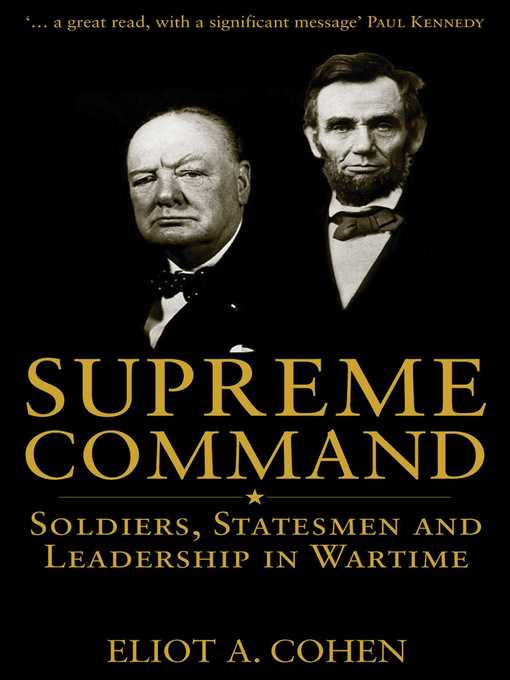By examining the cases of four of the greatest war statesmen of the twentieth century he explores the problem of how people confront the greatest challenges that can befall them, in this case national leaders. Beginning with a discussion of civil-military relations from a theoretical point of view, Cohen lays out the conventional beliefs about how politicians should deal with generals and the extent to which either can influence the outcome of war. From these he draws broader lessons for students of leadership generally.
-
Creators
-
Publisher
-
Release date
October 1, 2012 -
Formats
-
OverDrive Read
- ISBN: 9781471105142
-
EPUB ebook
- ISBN: 9781471105142
- File size: 1336 KB
-
-
Accessibility
-
Languages
- English
-
Reviews

Loading
Why is availability limited?
×Availability can change throughout the month based on the library's budget. You can still place a hold on the title, and your hold will be automatically filled as soon as the title is available again.
The Kindle Book format for this title is not supported on:
×Read-along ebook
×The OverDrive Read format of this ebook has professional narration that plays while you read in your browser. Learn more here.
